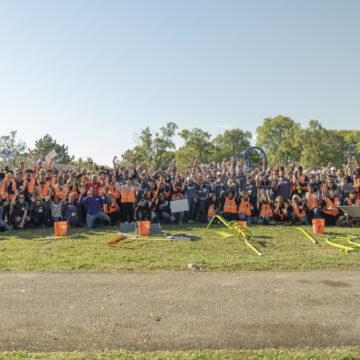This article was originally published on the Discover Financial Services Blog.
Growing up, Sal Terracciano often visited his grandparents, who lived in an underdeveloped part of suburban Chicago. There wasn’t much for children to do in the area until a playground was built across the street from his grandparents’ home. Some of his favorite childhood memories stem from that space, where he gathered with his siblings, cousins, and kids in the neighborhood for hours on end to play.
Decades later, in a full-circle moment, he volunteered through Discover and the national nonprofit KABOOM! to build a playground for children who did not have one nearby. The playspace was in the town next to where his grandparents lived.
“We had a lot of freedom and joy because we had access to a playground, and thinking back to that makes me even more motivated to volunteer for a cause like this,” said Terracciano, principal of business risk strategy at Discover. “I think a playground is a space where children can be creative, pretend and just be their true selves.”
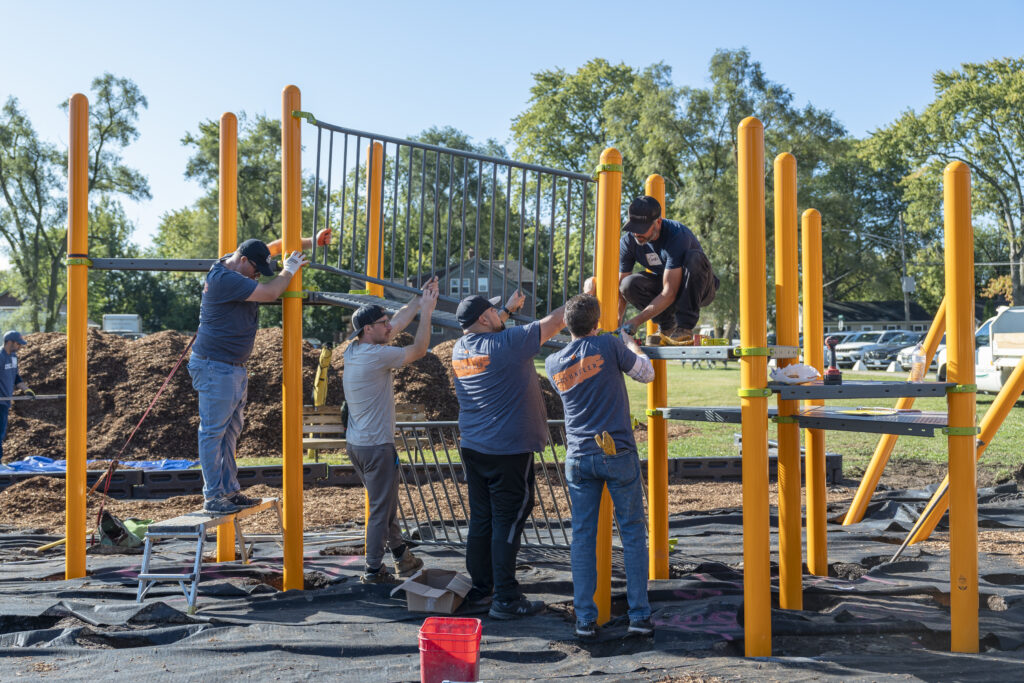
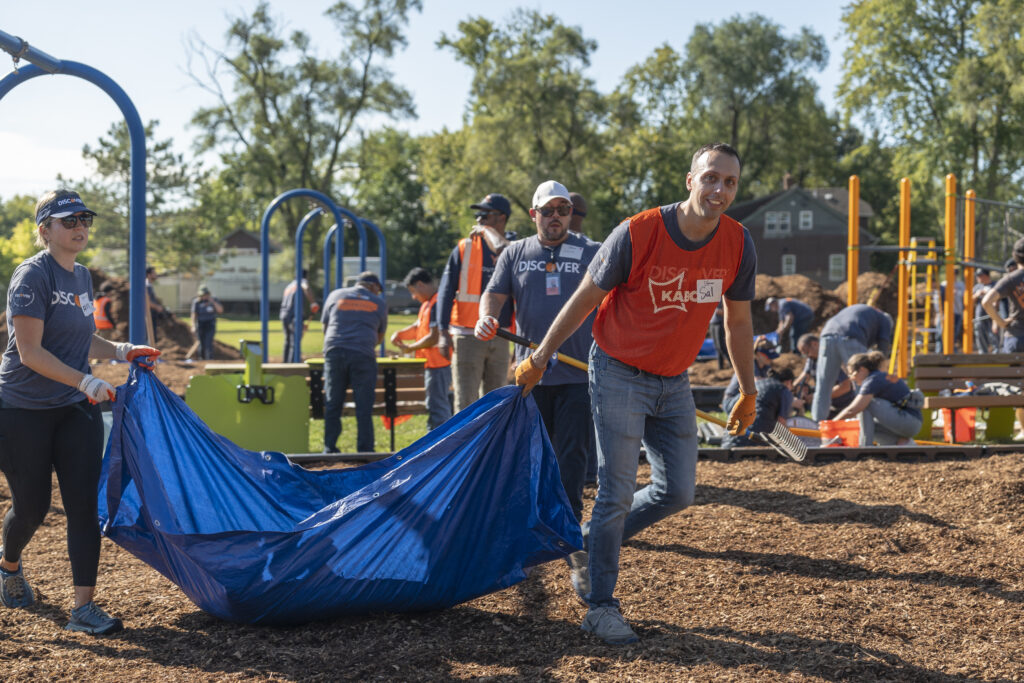
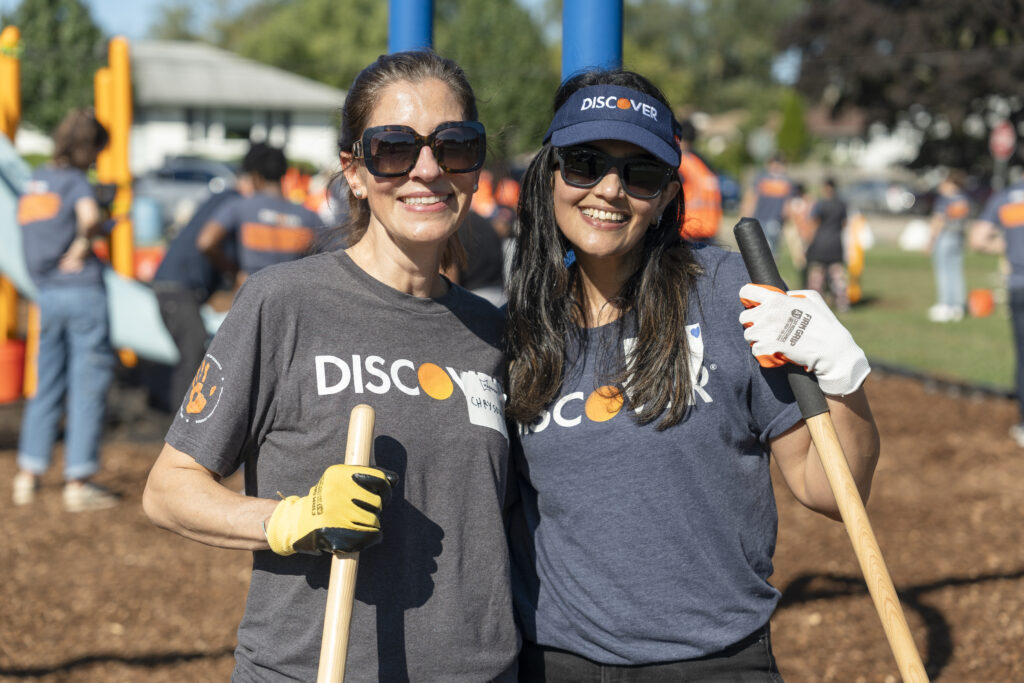
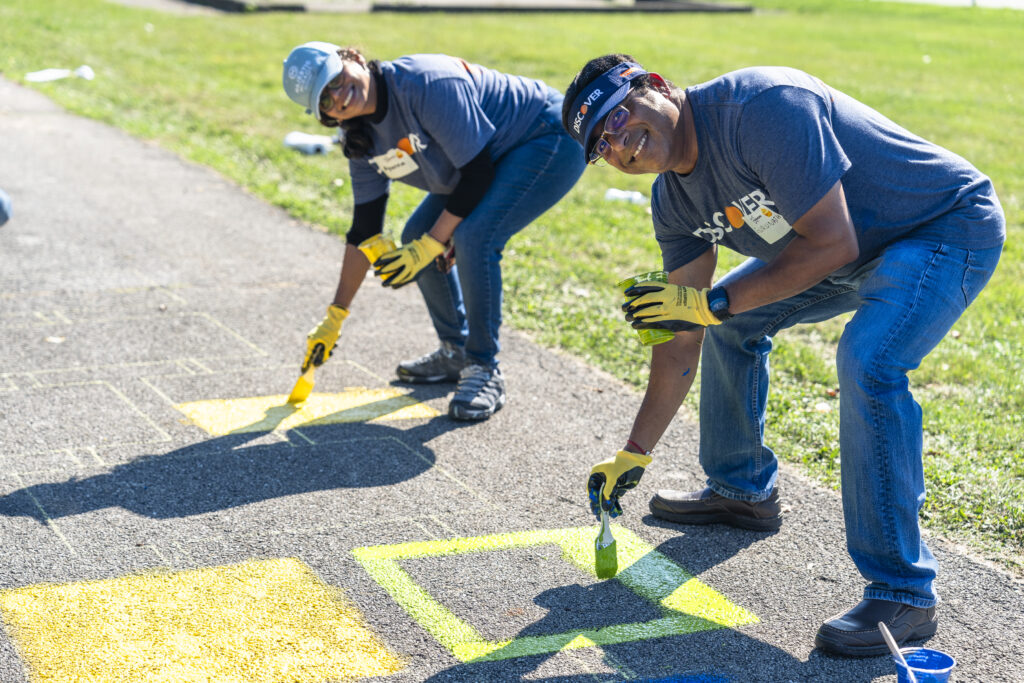
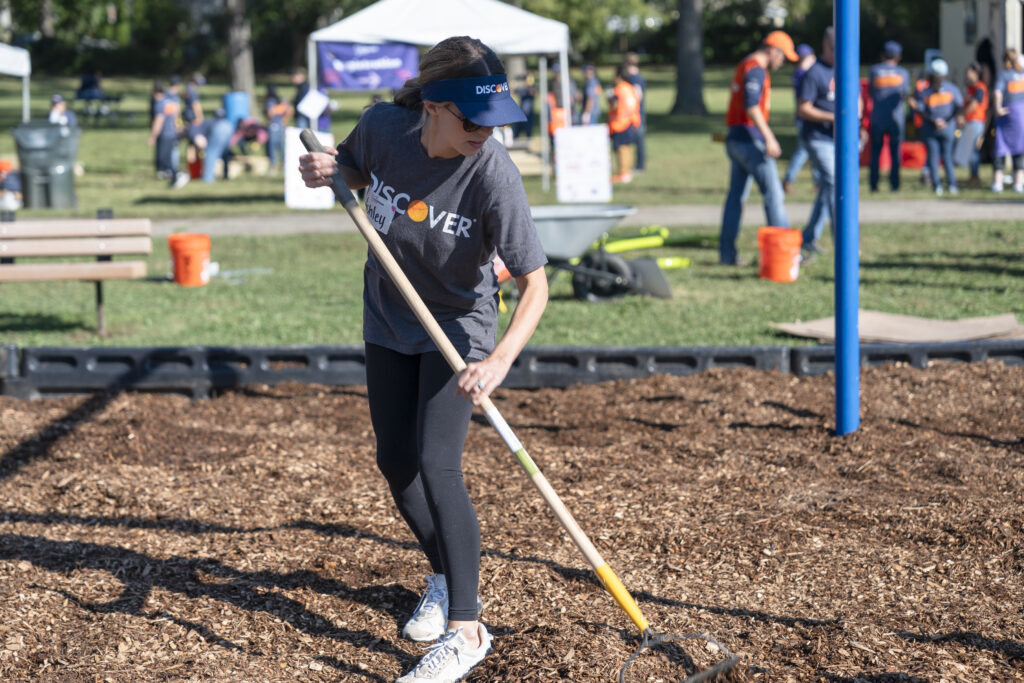
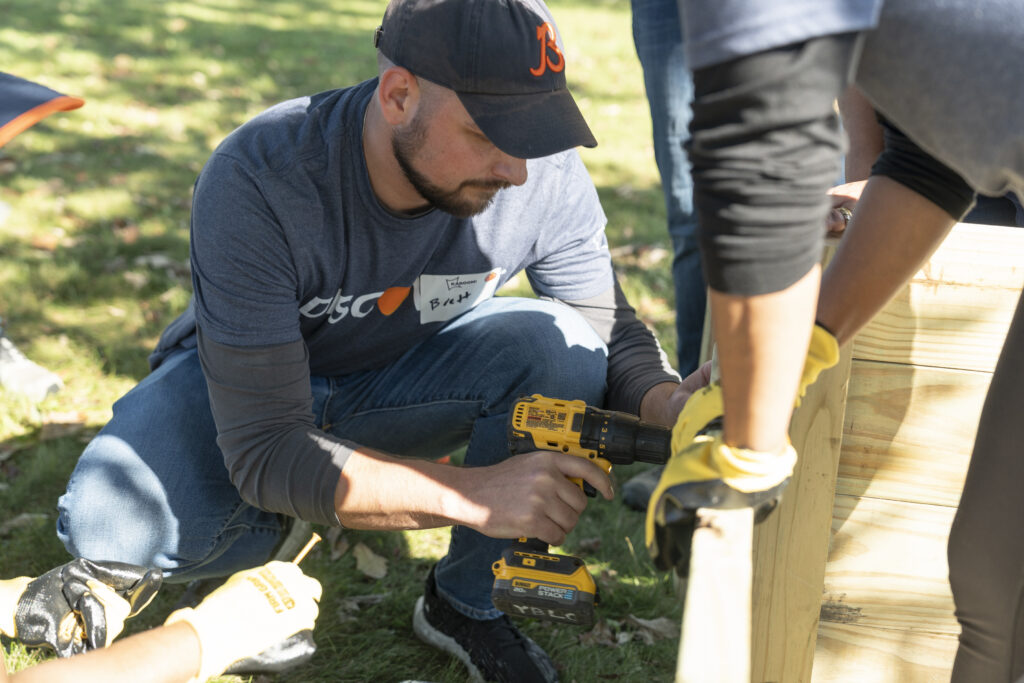
Discover and KABOOM! have collaborated for nearly 30 years and most recently celebrated 50 builds together with the newly constructed playground at Twin City Park in Waukegan, a suburb north of Chicago. About 90 employees from Discover Global Network gathered on September 25 to build the state-of-the-art playspace that will be enjoyed by more than 800 children each year.
The two organizations joined forces in 1996, with a 5-day build in San Antonio. Since then, KABOOM! playground builds supported by Discover have taken place in towns around the company’s headquarters and customer care centers, from Chicago to Phoenix to Salt Lake City to Columbus, Ohio and Wilmington, Delaware.
And over the years, Discover has provided nearly 13,000 volunteers who have donated more than 75,000 hours to the cause.
With a mission to eliminate playspace inequity, KABOOM! identifies communities nationwide that have limited access to safe, outdoor playgrounds or those that have playgrounds needing revitalization.
The nonprofit then works with local kids to design the playgrounds, ensuring the spaces reflect the unique needs of each community. Organizations in the area help fund the project and volunteers build the playgrounds in one to three days.
“KABOOM! is so incredibly proud of our long-standing partnership with Discover,” said KABOOM! CEO Lysa Ratliff. “As we celebrate the 50th milestone playspace build at Twin City Park, I’m reminded of the impact that can be achieved when partners unite to work alongside communities to create safe, joyful spaces where kids can learn, play and grow. We look forward to continuing this partnership with Discover for many years to come and inspiring generations of happy and healthy kids.”
The average lifespan of a playspace ranges from 15 to 20 years, according to KABOOM!.
At Twin City Park, the park equipment was 22 years old. Now the playspace has brand-new blue slides and yellow monkey bars. There are dedicated areas for both younger and older children. On the build day, volunteers dug holes, moved mulch, mixed concrete and assembled playground equipment.









“Discover feels strongly about giving back to the communities near where our employees live and work,” said Alyse Perkowitz, senior manager of community affairs at Discover. “Partnering with KABOOM! gives us opportunities to impact children while providing a place for the community to gather, all of which builds on our mission to help everyone achieve brighter futures.”
Chrysoula Economopoulos, senior manager of international communications for Discover Global Network, has volunteered for different causes since she started at the company 11 ½ years ago. She appreciates how the volunteer events coordinated by Discover have given her a chance to give back to the community, meet new coworkers and spend time with colleagues outside of the workplace.
Her first build with KABOOM! was in September 2023, when she was pregnant. Now her son is 10 months old. The time with her son has helped her understand just how crucial play and being outdoors are from a developmental and interpersonal perspective.
“Kids need to let out energy and interact with their environment outside, and with other children,” she said. “It’s special to be a part of helping to make that happen and seeing these playgrounds come to life to benefit children.”
